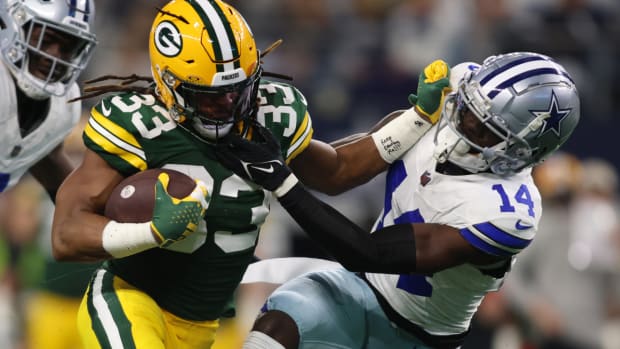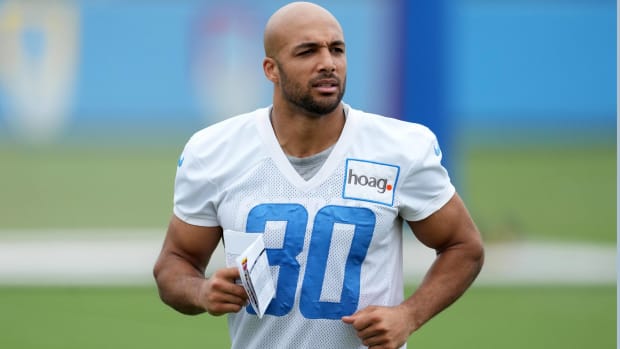Strategy room: Future often trumps title aspirations in keeper leagues
For more fantasy analysis, check out Mastersball.com.
If you play exclusively in a redraft league, you get the week off. For the rest of us who play in keeper or dynasty leagues, it is the time of season we need to make honest assessments of our squads and decide if we want to fortify our them to make a run at the championship or build a foundation to compete in the future.
While on the surface, the decision is easy, there may be more to it that meets the eye. Well, maybe not so much with respect to making the decision, but perhaps more so with regards to what you do after you make the difficult decision to rebuild. But before actually making the decision, you really need to make sure you are in tune with the dynamics of your league.
The most common advice offered by fantasy pundits is to attack keeper leagues using a compete-rebuild-compete-rebuild cycle. But here's the problem. Not all keeper formats lend themselves to that philosophy. In some leagues, the player turnover is not sufficient to adequately replenish those teams looking to compete for that campaign.
While there is no textbook definition of the terms keeper league and dynasty league; in the extreme, a keeper league can be considered one in which the salary and contract structure are such that each spring, there is a substantial influx of expired or expensive contracts into the available player pool while in a dynasty league the player turnover is minimal. Anything in-between can be thought of as a hybrid format.
Practically speaking, the more a league has dynasty traits, the less dealing away a significant portion of your future makes sense. A dynasty league is termed as such for a reason. The successful teams build a keeper core, rendering their teams competitive for several seasons, that is a dynasty. And since most dynasty rules allow that the majority of the roster be kept in perpetuity, building a dynasty is not only a reasonable expectation; it should be the ultimate goal.
This brings us back to the point about being in tune with the dynamics of your league. With the disclaimer that in most instances, winning the league title trumps everything, dealing away too much keeper talent in a league with dynasty tendencies may set you back several years when in fact, you may be only a season away from managing a team set to contend for several more.
So what is a fantasy owner to do? Regardless of the format, something to consider, especially if you find yourself wallowing in mediocrity in a long-time league is to study how the most successful owners manage their teams. Do they utilize a win-retool-win-retool cycle or do they remain competitive for several seasons due to a solid core of players? While the expression that it is best to zag while everyone else is zigs has merit, so does being aware of history lest you repeat it. The point is imitation is the sincerest form of flattery, and I have now used up my cliché quota for the month. There is nothing wrong with emulating what has been successful for others.
So before you decide to sell your fantasy soul to bathe in the Yoo-hoo, consider the repercussions. If the rebuilding process is facilitated by a constant influx of new talent each spring, then go for it. If not, perhaps consider practicing patience one more season, maybe acquiring that last piece so you are in a position to dominate the league for multiple seasons. Either way, check back here as over the next couple of weeks, the focus will be exactly how to rebuild in concert with your format.
Todd Zola recently merged Mastersball.com with CREATiVESPORTS.com where their combined staff features some of the most successful fantasy players in the industry. Todd's focus is strategy and game theory. He contributes to the Mastersball subscription packages as well as a free blog and is a frequent contributor to the site's public message forum. Todd is a veteran of Tout Wars and LABR and has multiple first place finishes in the National Fantasy Baseball Championship and thinks a keeper/dynasty league with all the owners on the same page can be the most enjoyable and rewarding format to play.






































